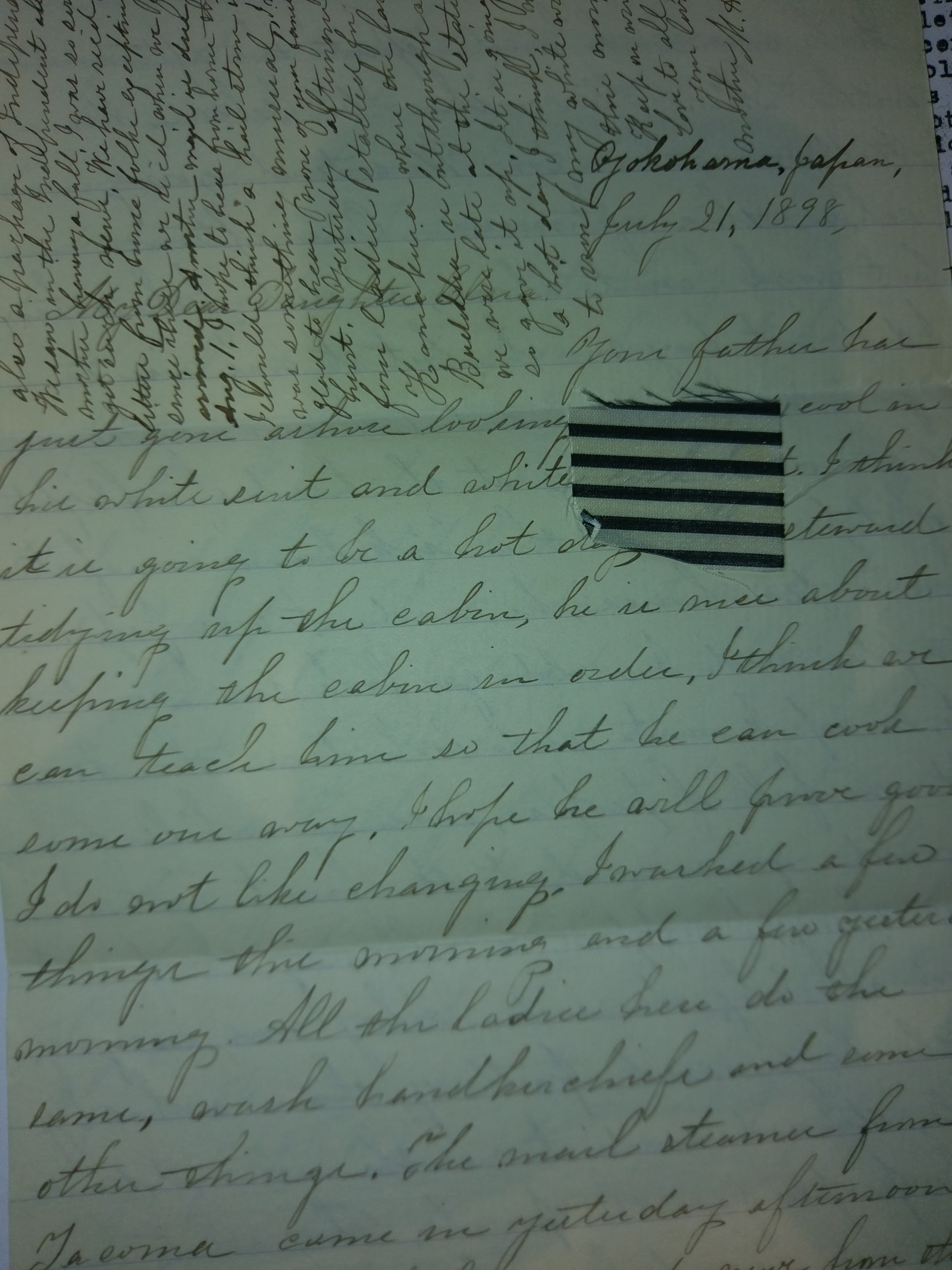While completing inventories of donations to the San Francisco Maritime Museum, I have found myself spending a great deal of time reading correspondence written between the late 1800’s and the 1970’s. As I read letters written from ship captain’s wives to children back home, and from sisters to brothers at sea, I am struck by how often the topic of a letter is the mundane goings on of every day life. People share details about the weather, what they have eaten, and purchases they have made or hope to make.
Of course, circumstances make some of these details extraordinary to my eyes in the 21st century. A ship captain’s wife, at sea with her husband, writes home about meals of dolphin chowder, and purchases of fabric in Yokohama, Japan, even including a swatch of fabric folded into the letter’s pages.

A sister writing to her brother while he is overseas with the Navy during World War II describes purchasing the family’s first television set and surprising her children with it.
I am just the right age to have experienced both pen pals and the beginning of chatrooms and email. I have seen my most regular communication with friends transfer from phone calls to text messages. If I want to have phone call with a friend, I now text them to find a good time for both of us, and our calls often happen over an internet video call service. A few years ago I bought a new cell phone and it took me several weeks to discover that the mic component was not functioning; that’s how infrequently I use a phone to have a conversation with anyone.
If I was going to sit down to write a letter today, I would feel like I needed to have something important to say — a story to tell. That is why the mundane correspondence in the archives is so interesting to me. The sea captain’s wife seemed to use her letters home much how we use text messaging or Instagram, even knowing that the messages would not be received for months. There’s a simple “here’s what I’ve been up to” quality to them. And because she saw fit to report her everyday life to her daughter back home, we now have a unique historical record of her unique reality.
